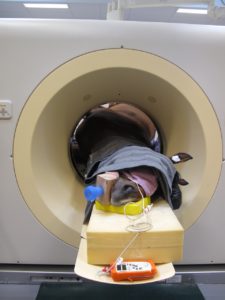
New Data on Pergolide Dosing in Horses
Researchers found that once-daily dosing with 1 mg of pergolide is appropriate for most horses with PPID.


Researchers found that once-daily dosing with 1 mg of pergolide is appropriate for most horses with PPID.

A custom-designed equine CT table and a commercial Big Bore scanner make it possible to image neck lesions in horses.

A recent study suggests small strongyles might not behave the same way in foals as they do in adult horses.

Neonatal medicine is an important area of equine practice, because time is of the essence when youngsters are sick.

Researchers are working to help us better evaluate and manage parasites in the face of anthelmintic resistance.

Controlling disease spread can be challenging. A veterinarian offers tips on how to react if your farm becomes infected.

Performance horses need customized diets to meet their energy requirements, as hay alone likely won’t suffice.

In one study, bacteria in 91.5% of the foals were susceptible to this antimicrobial combination.

Implement appropriate biosecurity measures pre-emptively, as infectious disease is an ever-present risk with horses.

Dr. Norm Ducharme reviewed how to diagnose and treat airway issues during the Milne lecture at the 2016 AAEP Convention.

None of the samples from recently vaccinated horses had antibody titers close to the value cutoff for true disease.

Researchers found an overall decreased survival rate in sick foals with thrombocytopenia (low blood platelet counts).

This finding could help veterinarians manage owners of horses that have reacted adversely to the vaccine in the past.

Researchers found that meropenem can be useful, but should only be used when other antibiotics have failed. Here’s why.

Owners can take several steps to ensure a successful transition from athletic to breeding performance.

Is your horse struggling to breathe? Equine asthma might be the cause.
Stay on top of the most recent Horse Health news with